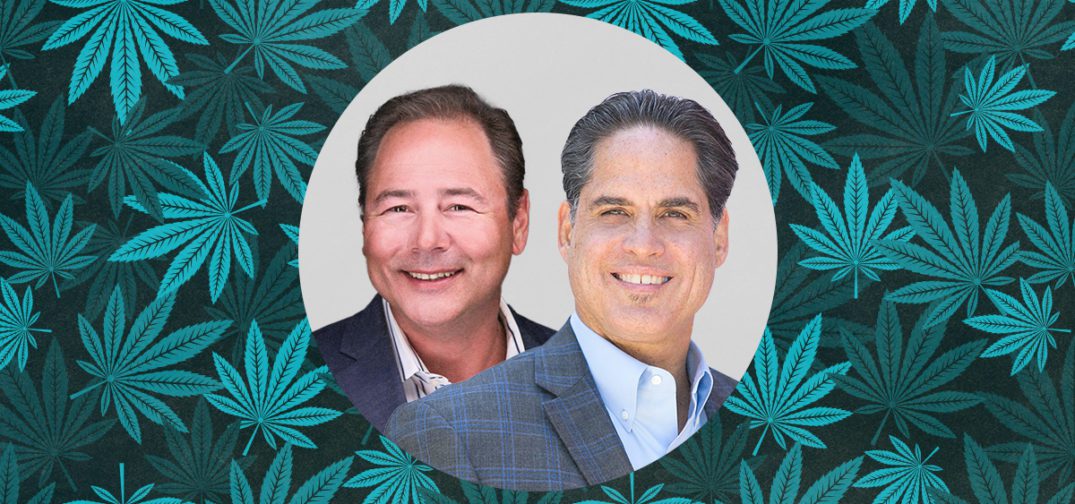Between the cannabis industry’s nascency and its highly regulated and cash-rich environment, operators in the space face a formidable number of business risks. But while these risks are real, concerns can be eased with the help of risk management experts like Nine Point Strategies, an agency offering business insurance and human resources consulting for the cannabis space.
Ganjapreneur recently interviewed Nine Point’s Program Director Jesse Parenti and Executive Producer Kirk Miller about the insurance needs of cannabis operators and the firm’s approach to HR consulting across the industry’s many different types of companies, including cultivation, retail, and testing labs, and others. This Q&A interview also covers the various insurance types available to cannabis operators, which risks are the most overlooked in the industry, advice for entrepreneurs to reduce risk, and more!
Scroll down to read the full interview.
Ganjapreneur: As HR consultants do you use one blanket method for each company or do you adjust how you operate to match the client’s company culture? Why?
Jesse Parenti: While there are similarities between license types, we customize our approach based on the client’s needs, level of sophistication and exposure. For example, the larger vertical operators will have different needs than a small cultivator.
Will you explain the difference between basic and excess insurance options when it comes to coverage, cost, and assessment?
Kirk Miller: By basic you mean underlying limits, versus Excess Limits. You first have to have the underlying coverage to purchase Excess Liability. For example, an operator can have General Liability limits of 1MM Per Occurrence and 2MM Aggregate, then they can purchase 1MM up to 5MM of Excess Liability that would go over the underlying coverage.
Does an owner/operator take on more risk in one sector of the industry than another? Which sectors are more in need of risk assessment and why?
Jesse Parenti: All sectors have their Exposures, for example outdoor cultivators have wildfires while, retail stores have Robberies. Delivery and Distribution should be concerned about their Auto Exposure, as one accident can create an extinguishing event. Those Operators that have a strong Culture, that supports both Safety and Accountability and creating a safe workplace and are reducing risk within their organization.
What are some of the most overlooked risks in the cannabis industry?
Kirk Miller: Directors & Officers (D&O), Employment Practices Liability (EPL), Cyber, Excess Auto. Most privately held companies are not purchasing these lines due to the cost, perceived exposure, and perceived value. This is slowly changing as the market matures and more sophisticated operators enter the industry. As claims develop and the industry gains insights on the risks and exposures, operators will need to expand coverages to further protect their assets.
Why is it complicated for cannabis companies to find business insurance? How does this amplify risk for these companies?
Jesse Parenti: Commercial insurance in general can be complicated, and for cannabis operations, the carrier options are limited, and coverage can be restrictive. Which is why companies need to work with Risk Advisors that specialize in the Cannabis industry. It’s important for companies to choose their broker rather than shop their coverage. In the cannabis space, it is critical to work with a Risk Advisor that understands your unique exposures and the carrier’s coverage forms.
When is the optimal time for a company to hire a dedicated risk management team like Nine Point Strategies?
Kirk Miller: We like to start having conversations with our clients as early as possible. Since we have been in the space for over a decade our advice and insights assist the operator in making better business decisions. It also helps with forecasting as we typically start with the basics like Bonds, GL, Work Comp and Auto. Then as the business grows and matures, we expand coverages to meet their needs, which can include Property, Cargo, Employee Benefits along with D&O, EPLI, Cyber and Excess Liability.
What are the benefits of hiring an HR consultant for an already established brand?
Jesse Parenti: Working with an HR consultant offers a second opinion by an expert that can provide support and check and balances. Many small to midsize businesses do not have a dedicated HR Director. Hiring an HR consultant is a great way to fill the knowledge gap, ease the burden of hiring and onboarding new employees, while also keeping the company compliant with employment laws and regulations.
How did you stay up to date on OSHA and safety regulations to best consult with your clients?
Kirk Miller: Currently California is the only state that requires licensed operators to complete the CAL-OSHA30 Training. The law mandates that one manager and one employee complete the CAL-OSHA30 Training every four years for every cannabis license.
Do you need to be educated on each sector of the cannabis industry in order to properly consult with them? What informs your expertise in each sector?
Jesse Parenti: Nine Point Strategies has been protecting the cannabis industry for over a decade. There is not much we have not seen or experienced. Which is why it is important for operators to work with a trusted risk advisor that understands your exposures and has extensive claims experience.
What is the top piece of advice for reducing risk in the cannabis space?
Jesse Parenti: Hiring the right people can make or break your business. Build a strong culture that is reinforced with safety and accountability. Work with knowledgeable industry experts, consultants, and advisors.
Thanks, Jesse and Kirk, for answering these questions! Readers can visit NinePointStrategies.com for more info.
End
